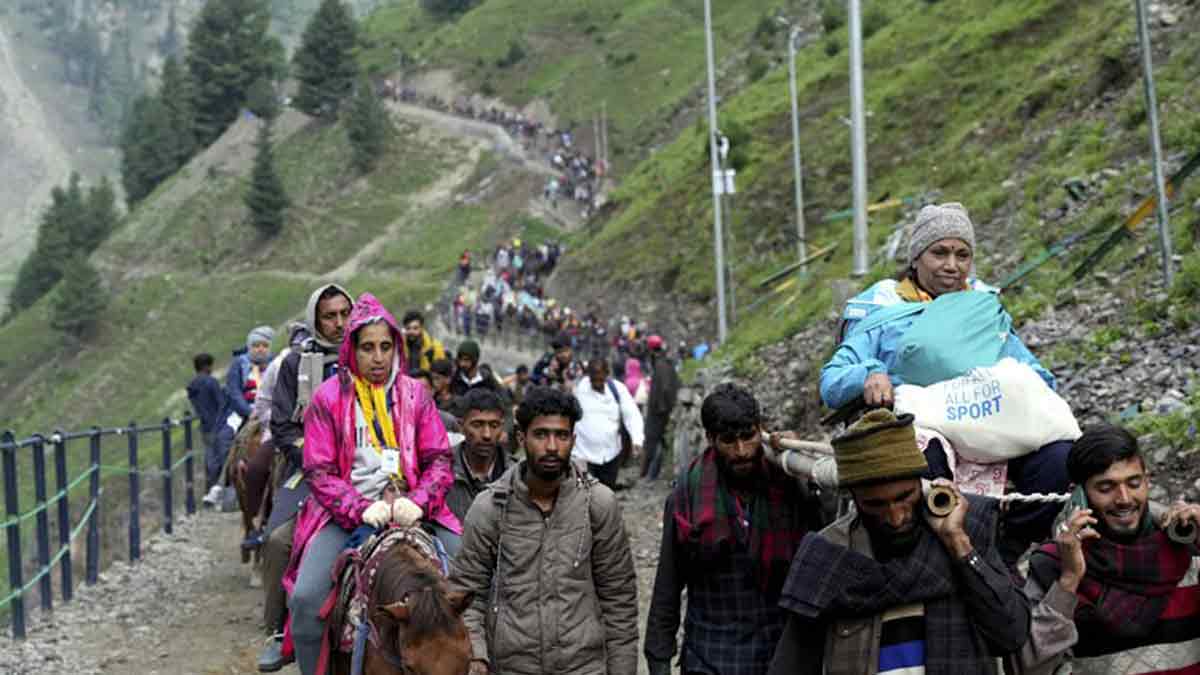Amarnath Yatra: ISRO brings satellite technology to support Kashmir’s health services
 Pilgrims trek through mountains to reach the Amarnath cave shrine | PTI
Pilgrims trek through mountains to reach the Amarnath cave shrine | PTI
For the first time, Amarnath Yatra pilgrims will receive specialist medical care at high-altitude camps through telemedicine services. Telemedicine facilities have been launched at the Baltal and Panjtarni Base Hospitals, using satellite-based connectivity.
This system links doctors stationed in remote locations with medical specialists in larger hospitals in real time, enabling quicker and more effective treatment, particularly during emergencies.
The initiative is a joint venture between the Indian Space Research Organisation (ISRO) and the Directorate of Health Services, Kashmir (DHSK). Plans are also underway to expand telemedicine services to four additional sites: the Holy Cave, Lower Holy Cave, Sheshnag, and Chandanwari.
Dr Jehangir Bakshi, Director of Health Services, Kashmir, said the service is already functional at Baltal and Panjtarni. As a result, pilgrims at even the most distant camps are now able to access expert medical consultation without being moved elsewhere. This has helped minimise patient transfers and strengthened on-the-spot treatment.
Each telemedicine setup includes satellite communication equipment, diagnostic tools, video conferencing systems, and mechanisms for securely sharing patient data with consultants.
This use of space technology marks a significant advancement in extending healthcare to remote and high-altitude areas. It is expected to significantly improve the speed and quality of medical care available to pilgrims during the Yatra.
The DHSK has deployed over 1,000 healthcare personnel—doctors, nurses, and paramedics—along the Yatra route. Emergency Aid Centres, Mobile Medical Units, and well-equipped Base Hospitals have been established at strategic locations. Life-saving medical equipment has also been made available.
Ahead of the Yatra, DHSK conducted training sessions for health workers and launched awareness drives to educate pilgrims about high-altitude sickness and emergency response.
These comprehensive measures are aimed at ensuring the health and safety of pilgrims during one of India’s most demanding and sacred religious pilgrimages.
This year’s Yatra holds special significance as it follows the tragic terrorist attack on tourists at Baisaran in Pahalgam on April 22.
Sci/Tech